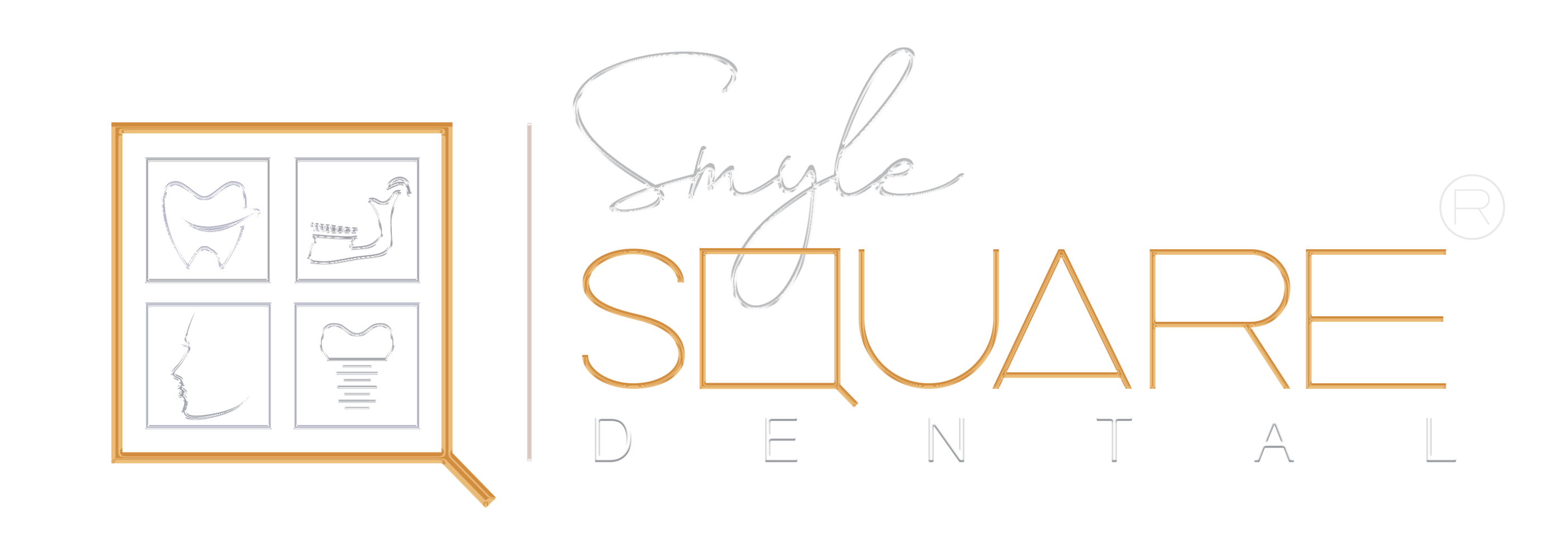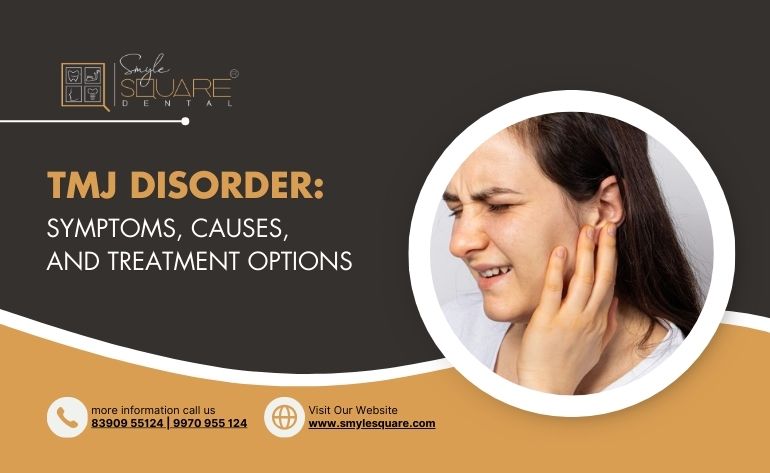Understanding TMJ Disorder
The Temporomandibular joint, or the hinge that connects your jaw to the skull, is a highly important part of the body and can often undergo problems that could result in functional issues. When the joint has certain problems, it can lead to TMJ disorder.
TMJ problems can cause pain and discomfort in the jaw, face, and even the head. While some discomfort in the temporomandibular joint once in a blue moon can be considered normal, excruciating pain for long periods may mean an underlying problem that needs prompt addressing.
This blog aims to provide all you need to know about TMJ disorder– including the symptoms, what might cause the problem, and how it could be treated.
If you feel you might be suffering from problems in the temporomandibular joint and are seeking TMJ treatment in Pune, visit Smyle Square Dental Clinic.
Common Symptoms of TMJ Disorder
TMJ is not symptomless and always shows some signs to tell you it is growing. This can include:
- Complications in the jaw hinge can mainly cause jaw pain or tenderness.
- Clicking, popping, or grinding sounds when opening the mouth can happen when the temporomandibular joint cannot open and close properly.
- Difficulty or discomfort while chewing results from pain in the TMJ.
- TMJ problems can often cause locking of the jaw in an open or closed position.
- Frequent headaches, earaches, or facial pain are additional symptoms that are complementary to TMJ disorder.
- Increasing complications of TMJ pain can lead to swelling on the side of the face.
Causes and Risk Factors of TMJ Disorder
- Teeth grinding (bruxism) and jaw clenching exert pressure on the TMJ to cause pain and discomfort.
- Injury or trauma to the jaw or face can impact the joint, making movement and speaking difficult.
- Misaligned teeth or bite issues also exert pressure on the TMJ and increase the risk of discomfort.
- Stress and anxiety leading to muscle tension in the jaw also impact the temporomandibular joint.
- Genetics and hormonal factors are mostly overlooked but may contribute to TMJ symptoms.
Non-Surgical Treatment Options for TMJ Disorder
- Lifestyle Changes: Certain lifestyle changes, such as avoiding hard foods, practicing stress management, and maintaining good posture, can help alleviate pain and discomfort caused by TMD.
- Physical Therapy: Jaw exercises and muscle relaxation techniques relieve TMJ pain and improve quality of life.
- Medications: In some cases, you might be recommended pain relievers, anti-inflammatory drugs, and muscle relaxants to rid the pain.
- Oral Appliances: Sometimes, mouthguards or splints can be used to prevent teeth grinding and jaw clenching.
Advanced Treatment Options for Severe Cases
When the TMJ disorder is too complicated to be treated with basic options, you may be recommended:
- Orthodontic Treatment: Corrects bite issues that may be the reason for TMJ issues, such as pain and discomfort.
- Surgical Options: Surgery can also be recommended to treat the structural issues in the temporomandibular joint.
Preventing TMJ Disorder: Tips for Jaw Health
- Stress management is needed to avoid jaw clenching, which may cause pain.
- Practice good facial posture to reduce strain on the jaw.
- Avoid excessive consumption of hard foods and chewing gum.
- Use a nightguard or mouthguard if you grind your teeth at night or play sports.
TMJ pain can be quite frustrating, but with the right care, it can be effectively managed, allowing you to overcome discomfort, function well, and enjoy a satisfying life.



